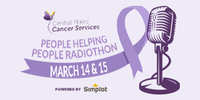Following the province's announcement that it's the first in the country to prepare a program to collect race-based data for all patients coming into our hospitals, Dakota Tipi Chief Dennis Pashe says it's all based on money.
The program was planned to highlight gaps in equity between patients for the quality of health and length of wait times to, more or less, prove there is racism in how these decisions are made.
"We've already identified that there are problems with the Canada Health Act," says Pashe. "It's all based on funding. I think, recently, the funding increases that the federal government announced to the province have a rider that they have to spend that money on health. It might improve, but under this provincial government, there's been nothing but cutbacks to health. That's not acceptable because ultimately, who suffers is those who are the most vulnerable. There are monies for businesses to support business people to run in elections. I think Obby Khan got $500,000 to do something, but there's no money for health."
He notes his people are left suffering, adding no more studies are required to prove that.
"What I need and what I'm pushing for, and I think that's what Assembly of First Nations and Ottawa is pushing for, is First Nation health legislation," continues Pashe. "That's where I want to go, whereby the money will come to the First Nations and we will purchase those services from the Regional Health Authority, or we will deliver those services ourselves, or create our own hospitals so that we will have those services for our people. Right now, we do not have primary care, doctors, and so forth. We're not funded."
Pashe says he was in the hospital last week with a knee problem. He explains he was supposed to undergo knee surgery and has been waiting three years.
"My knee flared up and I was worried it was infected," adds Pashe. "Portage has a reputation for amputations on First Nations people with diabetes. And I was worried about just going there. Even though I found the doctor to be very friendly, I found the nurses to be very friendly and very helpful, I'm still worried because I might get amputation for nothing. I wouldn't let it happen, but a lot of First Nation people don't know. They were not consulted properly about their condition, or whether or not amputation is the proper procedure for them."
He notes it brings that kind of discomfort for his people when visiting a hospital.
"I think we need to be going as First Nations people to purchase our service, deliver our own service, design our own programs, and I know we'd have better outcomes," continues Pashe. "You got to remember, too, that the province receives millions of dollars on First Nations people's health through the Canada census. Based on the census, the federal government will transfer funds to the province and we have no say on that. And it's not really working. The alternative I'm looking at is to purchase, deliver, and design our own programs. Right now, Portage is building a new hospital, but they're only increasing the diabetic treatment programs -- dialysis -- to 13 stations. Yet our First Nations have about 50 dialysis patients."
Pashe says Long Plain First Nation, Dakota Tipi, Sandy Bay, and Dakota Plains comprise those patients.
"We have to wait till somebody dies before our people can go to the Portage hospital," notes Pashe. "Whereas, if we had our own, we could have our own dialysis units. Right now, we're paying a lot of money for people to travel into Winnipeg to receive dialysis services, and that takes away from the service for service delivery, and having our people go to, say, Portage la Prairie to see dentists, doctors, or clinics and so forth. That's not possible. We have to find alternative rides. That increases costs and we're funded at a lower level by the province or the federal government's programs. They don't seem to realize that the majority of negative statistics on health are on First Nations communities. But they don't respond accordingly."
He notes he is willing to comply and provide his race-based data when asked, but feels it's been proved that the Canada Health Act is failing. Pashe says the first reason is the lack of any First Nations leaders at the table as well as the lack of anybody advocating for the service delivery of their people.
"Yet we have the highest negative statistics and health outcomes based on all the social determinants," adds Pashe. "So, health isn't health. Poor health is an outcome of the living conditions the lack of resources, the loss of our lands, the loss of our resources, unemployment, and the loss of our culture. That's why we have mental health issues, physical issues, and so forth. So, I think that's what we would need to address through this federal health legislation. That's what we're going to be working on."











